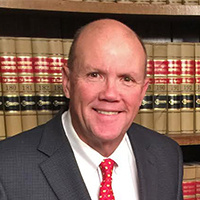Petrey Criminal Lawyer, Alabama
James A. Jacobs
✓ VERIFIEDAccident & Injury, Divorce & Family Law, Estate, Social Security -- Disability, Criminal
First licensed to practice law in Alabama in 2003, Attorney James A. Jacobs is a sincere and compassionate professional who cares about his clients an... (more)
William B. Matthews
✓ VERIFIEDDivorce & Family Law, Criminal, Accident & Injury, Business, Estate
William Matthews, Jr. is a practicing lawyer in the state of Alabama specializing in Divorce & Family Law; Criminal; Accident & Injury; Bankruptcy & D... (more)
FREE CONSULTATION
CONTACTRobert D. Segall
Mass Torts, Arbitration, Criminal, Bad Faith Insurance, Administrative Law
Status: In Good Standing
FREE CONSULTATION
CONTACTWayne Carter
Social Security, Divorce & Family Law, Criminal, Medical Malpractice, Divorce
Status: In Good Standing Licensed: 26 Years




